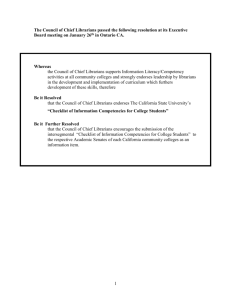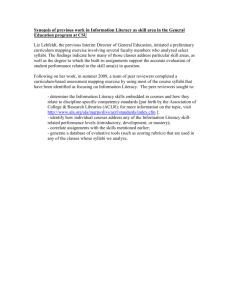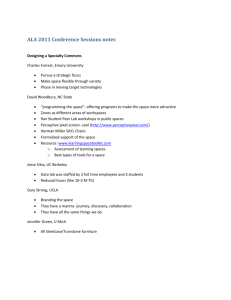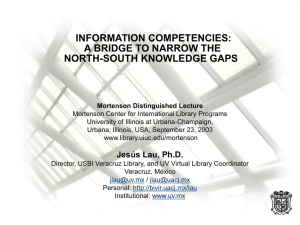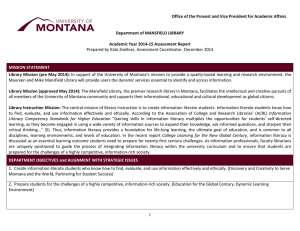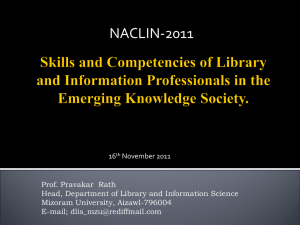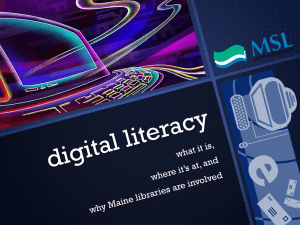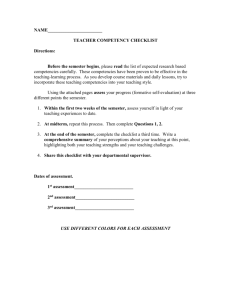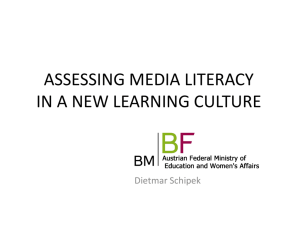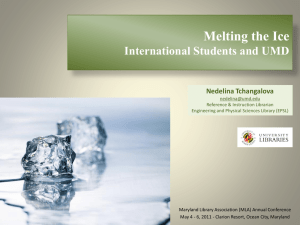A Checklist of Information Competencies for College Students
advertisement
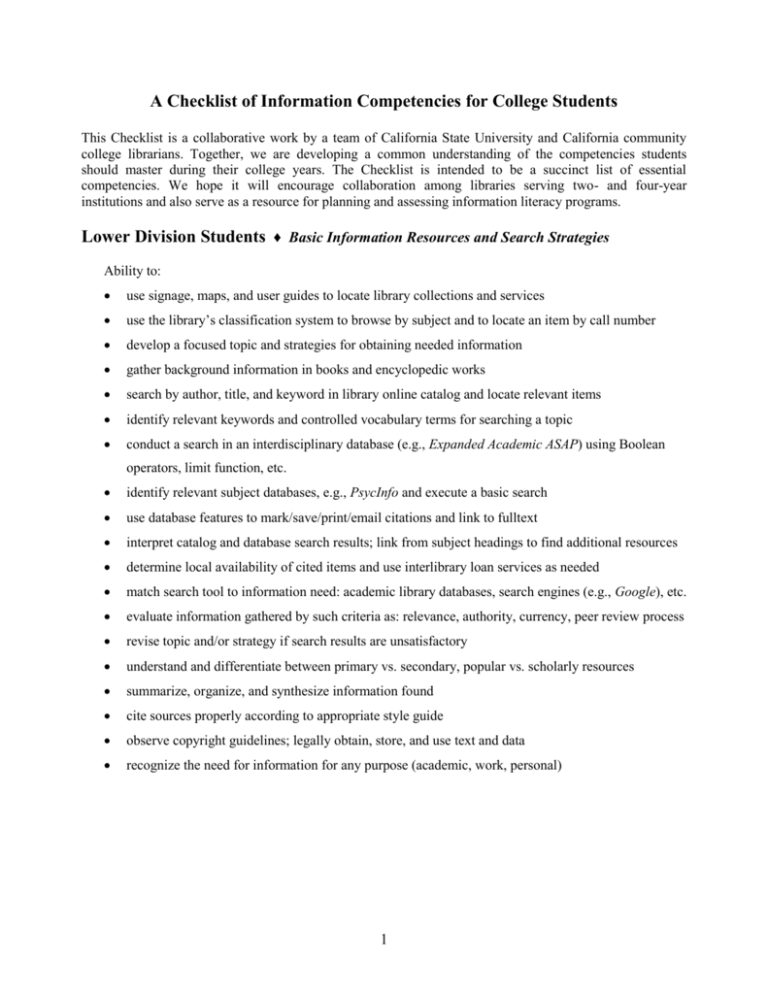
A Checklist of Information Competencies for College Students This Checklist is a collaborative work by a team of California State University and California community college librarians. Together, we are developing a common understanding of the competencies students should master during their college years. The Checklist is intended to be a succinct list of essential competencies. We hope it will encourage collaboration among libraries serving two- and four-year institutions and also serve as a resource for planning and assessing information literacy programs. Lower Division Students ♦ Basic Information Resources and Search Strategies Ability to: use signage, maps, and user guides to locate library collections and services use the library’s classification system to browse by subject and to locate an item by call number develop a focused topic and strategies for obtaining needed information gather background information in books and encyclopedic works search by author, title, and keyword in library online catalog and locate relevant items identify relevant keywords and controlled vocabulary terms for searching a topic conduct a search in an interdisciplinary database (e.g., Expanded Academic ASAP) using Boolean operators, limit function, etc. identify relevant subject databases, e.g., PsycInfo and execute a basic search use database features to mark/save/print/email citations and link to fulltext interpret catalog and database search results; link from subject headings to find additional resources determine local availability of cited items and use interlibrary loan services as needed match search tool to information need: academic library databases, search engines (e.g., Google), etc. evaluate information gathered by such criteria as: relevance, authority, currency, peer review process revise topic and/or strategy if search results are unsatisfactory understand and differentiate between primary vs. secondary, popular vs. scholarly resources summarize, organize, and synthesize information found cite sources properly according to appropriate style guide observe copyright guidelines; legally obtain, store, and use text and data recognize the need for information for any purpose (academic, work, personal) 1 Upper Division Students ♦ Disciplinary Resources and Critical Evaluation Ability to: identify and use specialized reference sources in the major field, e.g., subject dictionaries use special features of subject databases, e.g., chemical structure searching in SciFinder Scholar select controlled vocabulary specific to the discipline use appropriate subject-based style manuals and/or citation style formatting software describe how research literature is generated and disseminated in the major subject identify investigative methods in the major subject, e.g., fieldwork in anthropology identify and use unique resources in the major subject, e.g., case studies (business) and datasets (geography) observe guidelines and standards endorsed by the discipline/profession, e.g., human subjects research use appropriate criteria to evaluate and select resources suitable for upper-division work, such as relevance, scope, authority, objectivity, and currency perform cited reference searches in order to follow a research topic forward and backward in time conduct a comprehensive literature review for papers/projects, including books, journal articles, dissertations, technical reports, non-print media, etc. analyze a body of research literature, drawing conclusions and developing new insights use research collections beyond the local library when needed (e.g., special libraries and archives) apply ethical and legal principles to the use of information in all formats and contexts apply acquired information and research skills in new situations and contexts Project Coordinator & Editor: Susan Klingberg Contributors: Pam Baker, Topsy Smalley, & Bonnie Gratch-Lindauer Consultant: Ilene Rockman Source Documents: “Online Tutorials.” CSU Information Competence. 1999. <http://www.lib.calpoly.edu/infocomp/modules> Information Literacy Competency Standards for Higher Education. Chicago: ACRL, 2000. http://www.ala.org/ala/acrl/acrlstandards/informationliteracycompetency.htm#stan “Competencies For Each Year of Study.” Information Literacy: Program and Desired Outcomes. University of Connecticut Libraries, 2003. <http://www.lib.uconn.edu/using/tutorials/instruction/infolitmain.htm> 4/25/05 2


